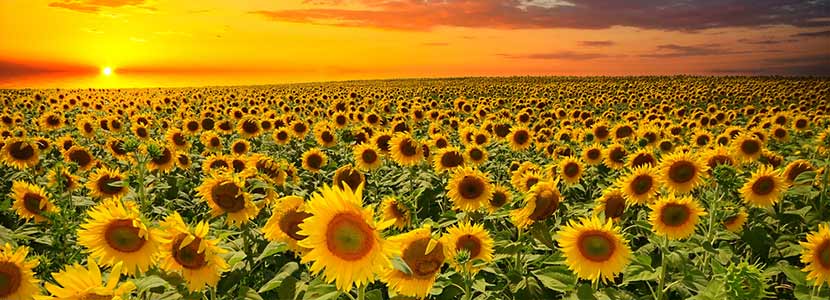

Making sunlight liquid – a brief history of sunflowers
With bright blooms that go from mid-summer to early fall, sunflowers say “summer” like no other plant. Plus, 2021 has been designated the “Year of the Sunflower”! What better way to celebrate than growing some yourself? Our Sunflower Growing Guide covers everything from planting to cutting flowers to harvesting seeds.
About Sunflowers
The sunflower (Helianthus annuus) is an annual plant with a large daisy-like flower face. Its scientific name comes from the Greek words helios (“sun”) and anthos (“flower”). The flowers come in many colors (yellow, red, orange, maroon, brown), but they are commonly bright yellow with brown centers that ripen into heavy heads filled with seeds.
Sunflowers are heliotropic, which means that they turn their flowers to follow the movement of the Sun across the sky east to west, and then returns at night to face the east, ready again for the morning sun. Heliotropism happens during the earlier stages before the flower grows heavy with seeds.
There are tons of varieties of sunflowers available today, so there’s bound to be one that fits your garden. Choose between those with branching stems or single stems, those that produce ample pollen for pollinators or are pollen-free (best for bouquets), those that stay small or tower above the rest of the garden, or those that produce edible seeds!
